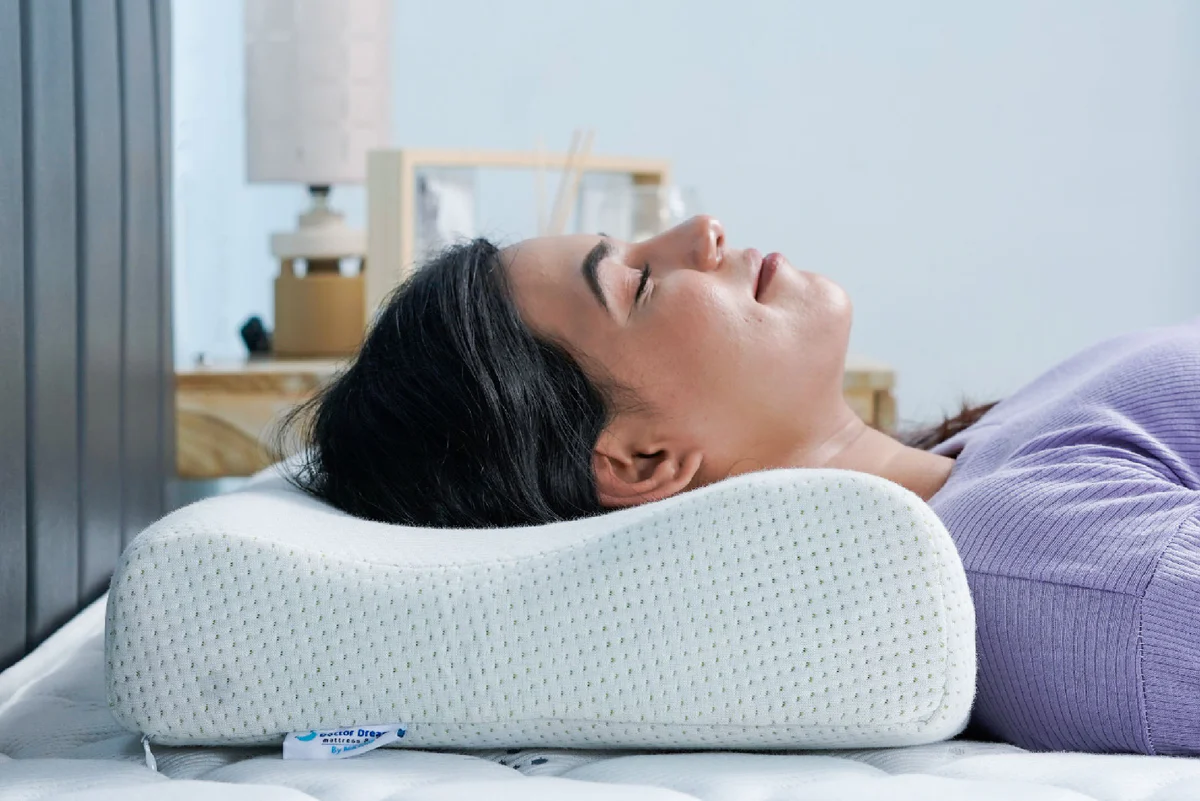Is Your Pillow Causing Neck Pain? Here’s How to Choose the Perfect One

Neck pain is a common complaint, often exacerbated by poor sleeping habits, including the use of an inappropriate pillow. The right pillow plays a crucial role in supporting your neck’s natural alignment, reducing strain, and promoting restful sleep. This guide explores what makes a pillow ideal for neck pain, discusses various pillow types, and provides actionable tips to choose the best one for your needs.
What Kind of Pillow is Best for Neck Pain?
The best pillow for neck pain should maintain the natural curve of the cervical spine. Ideally, it provides adequate support to your head, neck, and shoulders while ensuring proper spinal alignment. Orthopaedic pillows, specifically designed for neck support, are highly recommended. Memory foam pillows are among the top choices because they conform to your body shape, offering both comfort and support. Another option is a contoured cervical pillow, which has raised edges and a depression in the center to cradle the neck effectively.
Is Memory Foam Good for Neck Pain?
Memory foam is often praised for its ability to mold to the shape of your head and neck, reducing pressure points. Its viscoelastic properties help distribute weight evenly, providing customized support that can alleviate neck pain. Additionally, memory foam pillows are durable and tend to hold their shape longer than traditional pillows, ensuring long-term support. However, some users may find them too firm or warm, especially in hot climates, as memory foam tends to retain heat.
Is It OK to Sleep with a Neck Pillow?
Yes, using a neck pillow can be highly beneficial, especially for those suffering from chronic neck pain. A neck pillow—also known as a cervical pillow—supports the natural curvature of the cervical spine, which can help relieve tension and discomfort. Many travelers use neck pillows for support during long flights, but they can also be used during regular sleep to maintain proper neck posture.
How to Choose a Neck Pillow
When selecting a neck pillow, consider the following factors:
- Material: Memory foam, latex, or down are common materials. Memory foam is ideal for those needing firm support, while latex is hypoallergenic and durable. Down pillows are softer but may not provide as much structure.
- Firmness: A medium-firm pillow is generally recommended for neck pain, as it offers a balance between support and comfort.
- Shape: Contoured pillows are specifically designed to support the neck’s natural curvature, while traditional pillows may require adjustment to achieve proper support.
How Many Pillows is Good for Neck Pain?
Using one pillow is typically the best approach for managing neck pain. Overstacking pillows can misalign the neck and spine, exacerbating discomfort. A single, well-chosen pillow that supports your neck and head in a neutral position is optimal.
What Should be the Height of your Pillow
The right pillow height depends on your sleeping position and other factors, such as your body type and mattress firmness:
Back sleepers: A pillow between 4 and 5 inches is usually ideal.
Side sleepers: A pillow between 5 and 7 inches is usually ideal.
Stomach sleepers: A soft pillow that’s less than 4 inches is usually ideal.
Combination sleepers: Choose a pillow based on the position you sleep in most.
How to Solve Neck Pain at Home
In addition to choosing the right pillow, there are several home remedies that can help alleviate neck pain:
- Stretching: Gentle neck stretches can improve flexibility and reduce tension.
- Heat Therapy: Applying a warm compress or heating pad can relax stiff muscles.
- Posture Correction: Maintaining good posture throughout the day can prevent additional strain on your neck.
- Massage: A gentle self-massage or professional massage can provide temporary relief.
Disadvantages of Neck Pillows
While neck pillows are generally beneficial, they may not be ideal for everyone. Some common disadvantages include:
- Firmness: Some people may find neck pillows too hard or uncomfortable, especially during the adjustment period.
- Limited Sleep Positions: Neck pillows are often designed for back or side sleepers, which may not suit stomach sleepers.
- Allergies: Pillows made of certain materials, such as latex or down, can trigger allergies in sensitive individuals.
What is the Best Pillow for Neck Pain?
The best pillow for neck pain depends on your specific needs and sleep preferences. For most people, a memory foam or contoured cervical pillow offers the best combination of support and comfort. Make sure to consider factors such as material, firmness, and your usual sleep position when selecting a pillow. Combined with good posture and neck care habits, the right pillow can make a significant difference in reducing and managing neck pain.
Ultimately, finding the best pillow may require some trial and error, but the investment is well worth the improved comfort and health.






